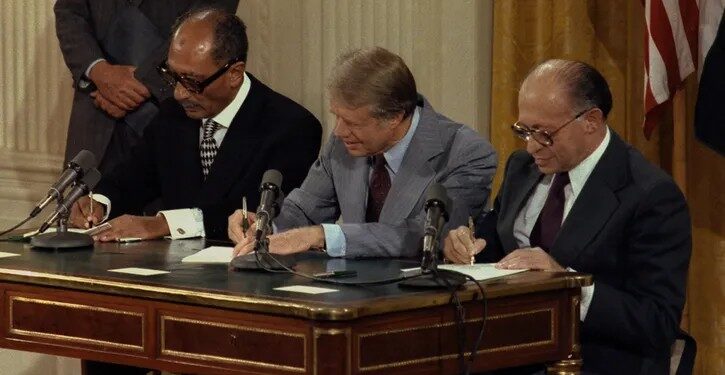In 1978, two influential leaders from the Middle East, Egyptian President Anwar Sadat and Israeli Prime Minister Menachem Begin, were jointly awarded the Nobel Peace Prize for their historic efforts to forge a peace agreement between their two nations. This recognition marked a turning point in the turbulent history of the region and symbolized the possibility of reconciliation between long-standing adversaries.
Anwar Sadat, the President of Egypt, took a bold step in November 1977 when he made an unexpected visit to Israel. This visit, known as the “Sadat Initiative,” was a pivotal moment in Middle Eastern diplomacy. Sadat’s willingness to travel to Jerusalem and address the Israeli Knesset demonstrated his commitment to peace and the importance of direct negotiations.
On the other side, Menachem Begin, the Israeli Prime Minister, reciprocated by engaging in serious negotiations with the Egyptians. Both leaders displayed immense courage and political will, as they overcame ideological and historical barriers that had prevented peace for decades.
The result of their efforts was the Camp David Accords in 1978, brokered by U.S. President Jimmy Carter. These accords laid the groundwork for the Egypt-Israel Peace Treaty of 1979, which led to the normalization of diplomatic relations between the two nations. For their roles in this groundbreaking achievement, Sadat and Begin jointly received the Nobel Peace Prize in 1978.
The Nobel Peace Prize served as a recognition of the tremendous risks both leaders took in pursuing peace in the Middle East. It also demonstrated the potential for dialogue and diplomacy to resolve even the most intractable conflicts. The recognition of Sadat and Begin paved the way for future peace efforts in the region, such as the Oslo Accords in 1993 and the Jordan-Israel Peace Treaty in 1994.
Sadly, Anwar Sadat paid the ultimate price for his commitment to peace, as he was assassinated by extremists in 1981. Nonetheless, his legacy and that of Menachem Begin live on as a testament to the power of diplomacy and the pursuit of peace, showing that even in the most hostile of environments, reconciliation is possible through courage, compromise, and dialogue.
newshub








Recent Comments